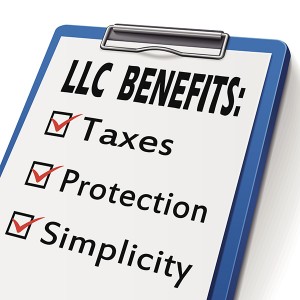
A Special Needs Trust might have been created to handle proceeds from a personal injury settlement or an inheritance left directly to an individual with a disability. It might be designed to protect eligibility for Supplemental Security Income (SSI), Medicaid or other public benefits programs — or for a number of programs (usually including those two) at the same time. Common questions about use of trust money revolve often revolve around what expenses should be paid from the trust such as travel and entertainment, transportation and housing and other expenditures.
The first place the trustee should look is at the trust document itself. It may be fine that state and federal law permit a particular expenditure, but if the trust does not then the trustee cannot take advantage of the government’s flexibility. Sometimes there is nothing to prohibit a proposed expenditure in public benefits law or the trust document, but that still might not mean that the purchase is appropriate — it might be imprudent considering the circumstances, or a violation of general trust administration principles.
All that said, the very purpose of Special Needs Trusts is usually to provide extra, or supplemental, items to the beneficiary the things that the system, family and other sources cannot or will not provide. One of the very few court cases addressing this concept is a 2004 Minnesota Court of Appeals case, In re: The Irrevocable Supplemental Needs Trust of Collins. The Court of Appeals ruled that the proper approach was not to second-guess the trustee as to each expenditure, but to determine whether the trustee was properly exercising his discretion. Since the whole point of a Special Needs Trust is to provide for extra benefits that are not otherwise available, the trial judge here should have presumed that a trustee/father knows best whether his daughter is mature enough to ride a snowmobile or attend a Britney Spears concert.
The Collins case was an unreported case and therefore sets no precedent for other courts.
Nonetheless, the Collins case can give us some assistance in determining whether a given expenditure should be approved from a Special Needs Trust. Among the items to consider in a given case:
1. Is the expenditure permitted by the trust terms? Is it prohibited by Medicaid or Social Security regulations?
2. Does the expenditure clearly benefit the trust’s beneficiary? Does it also benefit others, such as family members? If it benefits the trustee (as, for instance, a home improvement that clearly aids the beneficiary but also increases the value of the home owned by a parent/trustee), it should be scrutinized much more closely, and may not be permissible in all circumstances.
3. Is there enough money in the trust to make the proposed payment without seriously affecting the ability to provide other benefits in coming years? Not every expenditure that reduces future benefits is forbidden, but the larger the expenditure (in relation to the trust’s size), the harder it is to justify.
4. Is the proposed expenditure related to the purpose for which the trust was established? In other words, if the trust came from a personal injury settlement it will ordinarily be easier to approve expenditures for therapy or adaptive equipment related to the injury for which the settlement was obtained.
5. Are there other sources of funds? If public benefits are available to provide the same items, the money ordinarily should not come from the trust. But if the public benefits are so limited that the quality of the items will suffer, or if it takes an extremely long time for equipment or services to get to the beneficiary, the trust might still be available to make the purchase more quickly or to purchase better supplies or equipment. Where family resources are available, it might be better to save trust funds — especially if the beneficiary is a minor, and parents have a general obligation of support.
There will, of course, be other considerations in each case. We do not mean to give an encyclopedic list here, so much as to suggest that decisions about expenditures can be very difficult. It is not enough for the trustee to really, really want to make the expenditure, or to be completely convinced it is appropriate — it is important to consider the proposal from all sides, admitting that there may be good reasons not to proceed, as well. The key is that the trustee must act reasonably, remain free from self-interest or bias, and above all, be prudent.
How Does a Trustee Act Prudently? The best way to assure that proper decisions are made, and to minimize the possibility of later difficulties, is to seek independent advice from a qualified legal expert.
Payment by the trust for housing and food directly to the organization providing the services (income distributions) will not usually eliminate SSI and Medicaid benefits. Income distributions of food and shelter invoke special rules, known as In Kind Support and Maintenance, or “ISM,” which may reduce but not necessarily eliminate benefits.
What kind of expenses are considered “shelter” or “household” expenses according to the Social Security Administration? Social Security’s rules list these and only these:
1. Mortgage, including property insurance
2. Property taxes
3. Rent
4. Gas
5. Electricity
6. Heating fuel
7. Sewer/Garbage removal
8. Water
9. Food
In general, the benefit is not reduced by more than one third of the maximum Supplemental Security Income plus $20.00.
Sometimes it may be appropriate to consider the options and risks, to make an expenditure and report it to the appropriate government agency and wait for a response. Sometimes it may be better to seek the blessing of the court system, giving notice to government agencies as appropriate and asking for a determination of the validity of the proposed expenditure in advance.








